
In every presentation I give about the rise of left-wing antisemitism, someone from the audience invariably asks me “What should we do about the anti-Zionist young Jews?” The questioner is referring to the outspoken activists who organize protests, accuse Israel of genocide and call for an unconditional ceasefire, often getting arrested in the process. They’re the Jewish Voices for Peace demonstrators — not all of them young — who host “die-ins” on campus or at the train station. They’re the “as a Jew” Jews claiming over the bullhorn in the streets of Manhattan to speak “as a Jew” for authentic Jewish values against the Jewish state. They’re the IfNotNow Jews in their 20s, who recently endorsed all of Israel’s most ardent adversaries in Congress, including Ilhan Omar, Rashid Tlaib and Jamaal Bowman. “Take that! Jewish community.”
They’re Dina, the 23-year-old graduate student, coming to your Seder on Monday evening, who last year declared with complete certainty that by backing Israel you’ve failed to live up to your own Jewish values. Imagine what she’ll say this year with a war raging in Gaza. And with Uncle Lenny also coming, the beloved relative who volunteers at an IDF base for a week every summer and whose fervor for Israel’s right to self-defense knows no bounds, you’re in for a swell evening. You remember wistfully how much Lenny loved Dina when she was a teenager active in her youth group. You’ll need every drop of those four cups of wine. A rabbi friend offers a piece of advice: Speak to them both before Passover begins and ask them to hold their fire until after he singing of Chad Gadya and the Holy One, Blessed be he, smites the angel of death. Then they can have at it as the rest of the guests scurry home.
What should we do about these wayward young Jews? I detest the question. For one, I have no idea how to change them. They seem to feel pretty strongly about their views, seeing that they join keffiyeh-clad Hamas supporters in blocking traffic to the airport. For another, I’m trying to make a larger argument that American Jews must find new partners to fight against left-wing antisemitism and the question sidetracks us from this more important discussion. I’m not interested in spending a lot of time thinking about, conversing over, or worrying about how to reach the true believers of the ideology, Jew or non-Jew.
Yet, as much as I dislike the question about what to do about these rebel Jews, I know that they are part of our community. They are somebody’s children and grandchildren, nephews and nieces. They attended our shuls, camps, youth groups and day schools. They were taught by our liberal educators and rabbis that social justice means identifying with the oppressed. They then graduated from the warm embrace of empathetic liberalism to the binary world of “liberatory” activism, a world that divides humanity into oppressed and oppressors and places “Jewish power” and Israel front and center. We’ve literally raised these young activists. And one or more may be coming to your Seder Monday evening.
At a recent event at a Chabad House on campus attended by 50 Jewish students, one of the more hawkish attendees named Isaac posed the dreaded question: “How can I possibly build support for Israel on this campus when a group of Jewish lunatics go around condemning Israel at every turn? It was clear from the question that he had in mind several of his own adversaries on campus, who he’d permanently banish if he could. He wanted me to tell him how. Just when I thought I had deftly dodged the question, the rebbetzin chimed in with “I really think these young people have severed their ties to the Jewish people! We should not welcome them.” And then the Chabad rabbi, her beloved husband, blurted out, shaking his head, “I totally disagree! Some of these young people may be exploring, and we can’t cut them off. They’re still Jews.” Now this was interesting. If the Chabad rabbi and the rebbetzin can’t agree on what we should do with the anti-Zionist Jews, we really don’t have anything approaching a communal consensus.
I nevertheless have an answer: Stop obsessing. Devote some — but not too much— time to the question. The Jewish people have better things to do.
By saying “you” rather than “us,” the wicked son separates himself from the tribe, which the rabbis understood as an affront to the Jewish people.
Yet here we are on Passover, and I’m forced once again to confront the question in metaphorical terms: What do we do about the Wicked Son? So let’s spend a little time on it. When we arrive at the parable of the Four Sons during the Passover Seder, the Wicked Son asks “What does this ritual mean to you?” By saying “you” rather than “us,” the wicked son separates himself from the tribe, which the rabbis understood as an affront to the Jewish people. The Wicked Son is told that if he had been in Egypt he would not have been redeemed, and participants are instructed to “blunt his teeth,” which sounds like an act of torture committed by an evil dentist.
Rabbi Shlomo Riskin advocates that we treat the Wicked Son with affection and care. “Blunting his teeth” can actually be interpreted as calming the wicked child’s anger by reminding him or her that he or she remains part of the Jewish community.
Not so fast, says Rabbi Shlomo Riskin, who advocates that we treat the Wicked Son with affection and care. The rabbi suggests “blunting his teeth” can actually be interpreted as calming the wicked child’s anger by reminding him or her that he or she remains part of the Jewish community. If we can engage the Wicked Son thoughtfully, he asserts, there is a chance we can keep him or her in the fold.
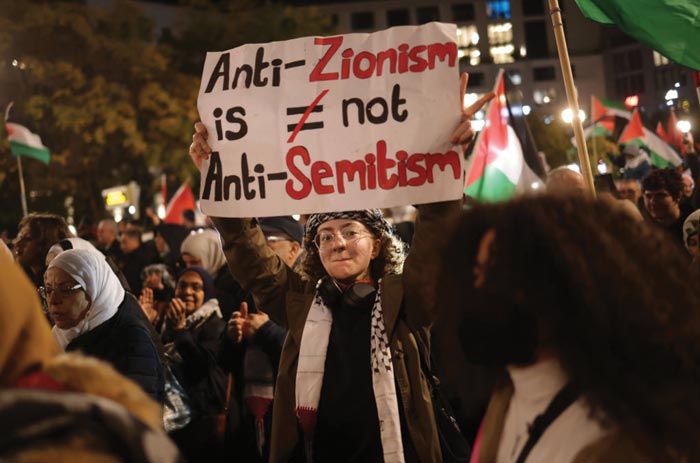
When I started writing this article, I asked a friend of mine who studies Torah regularly what Jewish sources say about the Wicked Son. The next day, he called me while studying with his very learned rabbi and put him on the phone. “Check out Exodus 12, verse 25,” the rabbi instructed.
“And when your children say to you, ‘What do you mean by this rite?’ You shall say, ‘It is the Passover sacrifice to God, who passed over the houses of the Israelites in Egypt when smiting the Egyptians but saved our houses.” The rabbi noted that in the Torah the Seder leader does not respond directly to the questioner, the Wicked Son, but to all the others at the Seder table. According to this reading, we should ignore the Wicked Son and use the provocative question as an opportunity to give the prescribed message to the whole table. I like this answer a lot, perhaps because it reinforces my own sense about how we should handle radical young Jews who scorn Israel: Mostly ignore them and stick to our larger mission and message.
I hold this position of benign neglect because obsessing about the Wicked Son misdirects our time and resources. The more we talk about him the less we speak to the other three sons — all of whom do see themselves as part of the community — who constitute a much larger percentage of young Jews. According to a recent Pew Survey, a majority—52 to 42% — of young Jews say the way Israel has carried out the war has been acceptable (a significant drop off from the 93% of all adult Jews who see it that way). But 91% of that young demographic segment also stated that Hamas’ actions were unacceptable. In other words, the vast majority of those who didn’t support Israel’s approach to the war weren’t relating to the most extreme narratives holding Israel culpable for the massacre against Israeli citizens. That’s a very small percentage.
In December of 2023, two months after the Oct. 7 massacre, a group of graduates, not all of them anti-Zionists, from the Charles E. Smith Jewish Day School that two of my kids attended, issued a hard-hitting open letter stating, “We are struggling to reconcile the unquestioned support for Israel’s brutal assault on Gaza with the Jewish values that we were taught at JDS. We believe that every person is created in God’s image, that every life is a world in and of itself. We refuse to forfeit this belief when it comes to Palestinians.” The initial response by many in the Jewish community was to see the letter as further evidence that we have lost this generation of young Jews. In May 2010, Peter Beinart published an essay in The New York Review of Books titled “The Failure of the American Jewish Establishment,” in which he opines that “For several decades, the Jewish establishment has asked American Jews to check their liberalism at Zionism’s door and now, to their horror, they are finding that many young Jews have checked their Zionism instead.” While such sentiment may have been common among a certain segment of American Jewish elites, it was never an accurate reflection of most young Jews. Yet it frightened many Jewish institutions into bending over backward to accommodate progressive sensibilities.
Just a few days after the original letter from the day school graduates came out, two other letters emerged, signed by far more graduates than the first letter, that “blunted the teeth” of the original in no uncertain terms. One called the letter “shameful in its impressive level of lies, propaganda, misinformation, and blatant falsehoods,” calling the signatories “self-hating Jews.” The writers of the counter letter expressed dismay that “fellow alumni would spread vicious blood libels about Israel like calling it an apartheid or colonial state.” In other words, many more letter signatories were squarely behind Israel than were opposed to it. If we become too preoccupied with the smaller group of signatories, we miss the opportunity to speak to a much larger group, many of whom signed neither letter.
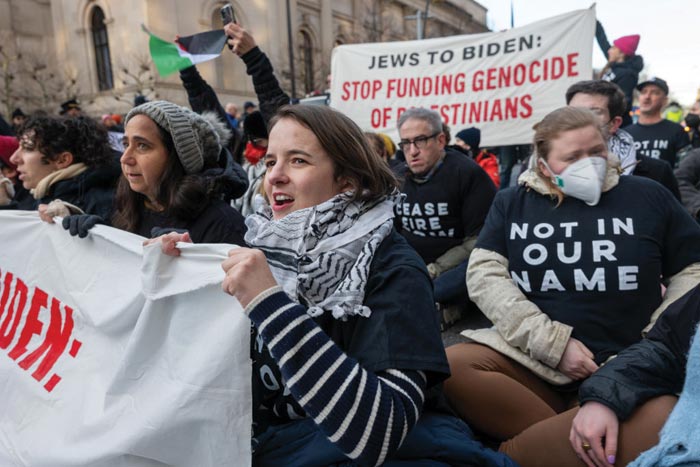
We can even get carried away in catering to young Jews who don’t quite rise to the level of Wicked Son status. Mijal Bitton, a sociologist and leader of the Downtown Minyan in Manhattan who works closely with young Jews, has noted this tendency to overgeneralize about the progressive political views of young Jews. Many aren’t simply looking for a stirring talk about climate change or racial inclusivity. They’re looking to fill a spiritual need or a social void or to just be around other Jews, and we should spend just as much, if not more, time and resources appealing to them.
I also hold this position of benign neglect because I don’t think all anti-Zionist Jews are evil or antisemitic.
I also hold this position of benign neglect because I don’t think all anti-Zionist Jews are evil or antisemitic. Years back, I went to my rabbi’s annual Sukkah party. I spotted a guy in his late twenties named Caleb with disheveled brown hair who attended shul regularly. He had a decidedly leftist bent, often challenging the rabbi’s commentary while my Republican shul-mate muttered curses under his breath. I had never been formally introduced to him. Caleb and I got to speaking and he asked me what I do for a living. “I’m the CEO of the Jewish Council for Public Affairs” (a position I no longer hold). He looked at me in disbelief. “I work for Jewish Voices for Peace,” he said, the hard leftist organization that works in “solidarity with the Palestinian freedom struggle” and opposes Israel’s right to exist as a Jewish state. Caleb and I were both holding little translucent plastic cups filled with the rabbi’s finest scotch, and spontaneously clinked them together, let out a “L’Chaim!” in unison, drank down what was left, and parted ways. Later that evening, we resumed our conversation in the sukkah. “I’m trying to find another job,” he said. “Some of the people at JVP are antisemites.” I asked if he meant they were anti-Zionists. “Oh no,” he waved me off. “I’m anti-Zionist. I have no use for Israel. Some of the people working at JVP hate Jews.” Notwithstanding his distaste for Israel, Caleb undoubtedly saw himself as a proud Jew.
I asked myself at the time: Would I go back to my rabbi’s sukkah party next year knowing Caleb would be there? Sure. His presence is no threat to me. Would I invite Caleb to my Passover Seder? No. I don’t want to hear someone rail against Israel’s supposed grave injustices while I dip the matzah in the charoset unless I absolutely have to. Would I sit with my own kids or relatives at a Seder if they were of Caleb’s persuasion? Yes, I would. I love my kids and I’d take Rabbi Riskin’s empathetic approach to “blunt their teeth.” But in this case, I’m engaging the anti-Zionist because they’re my own kid, not because I’m acting on some grand community engagement strategy. We should not conflate the two.
My encounter with Caleb got me further thinking: Are Caleb and his fellow travelers really self-hating Jews? Jonathan Glazer in his Oscar-acceptance speech certainly appeared as one. Ardent Zionists like me are supposed to say they are but I think it’s more complicated. I suspect some are but most aren’t. What I do know is that they favor a version of Jewish life completely at odds with my own, the dominant, Zionist stream.
“The public and communal staging of their anti-Israeli and anti-Zionist beliefs appears to be the badge of a superior form of Judaism, stripped of its unsavory and unethical ‘ethnocentric’ and ‘colonialist’ baggage.”
– Natan Sharansky and Gil Troy
In an article in Tablet, Natan Sharansky and Gil Troy call the anti-Zionist Jews “un-Jews” because these Jews “believe the only way to fulfill the Jewish mission of saving the world with Jewish values is to undo the ways most actual Jews do Jewishness.” Many un-Jews, they point out, are deeply involved in Jewish life, despite their harsh dissent. “For many of these un-Jews, the public and communal staging of their anti-Israeli and anti-Zionist beliefs appears to be the badge of a superior form of Judaism, stripped of its unsavory and unethical ‘ethnocentric’ and ‘colonialist’ baggage.”
The way I see it, the un-Jews they speak of occupy a kind of alternative universe on the vanguard of progressive causes and radical social justice activism that challenge the existing political and social order. Some fancy themselves in the image of the socialist, Bundist Jews of the early 20th century, delighting in Yiddish literature and deep conversations about the impending revolution in the coffee houses of Europe and America. The utopianism of that earlier generation of leftist Jews didn’t turn out so well for them. “Ultimately, the fire of revolution consumed these un-Jews too: Josef Stalin killed many of them, after they did his dirty work. Some of the survivors lived long enough to see their ideals collapse into the rubble of dictatorial repression, including Jew-hatred,” Sharansky and Troy remind us.
But never mind. Their contemporary progenitors, anti-Zionist Jews of today, can have their coffee shop discussions, their own organizations, their own temples (there’s certainly no shortage of rabbis to lead them), and their own protests. They can moralize on Twitter against Israel to their heart’s desire. Who’s to stop them anyway? Our prevailing attitude should be: “anti-Zionist Jew, you do you.” And we should go about our business.
There you have it: 2,500 words on a subject I’m admonishing you not to obsess over. I’ve said my piece. Next time I’m asked, I’ll refer the questioner to this article in the Jewish Journal and move on. May you have a peaceful Seder.
David Bernstein is Founder of the Jewish Institute for Liberal Values (JILV.org) and the author of “Woke Antisemitism: How a Progressive Ideology Harms Jews.”











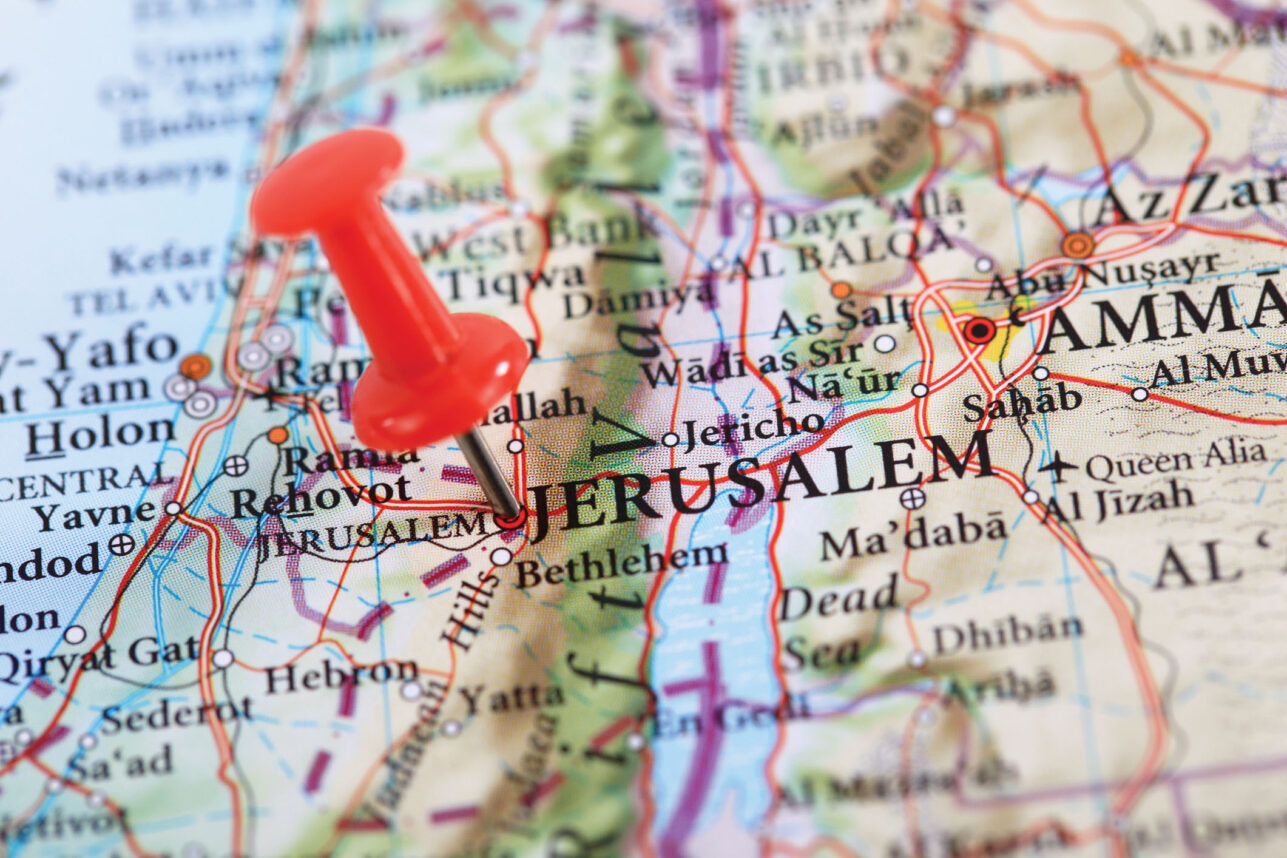
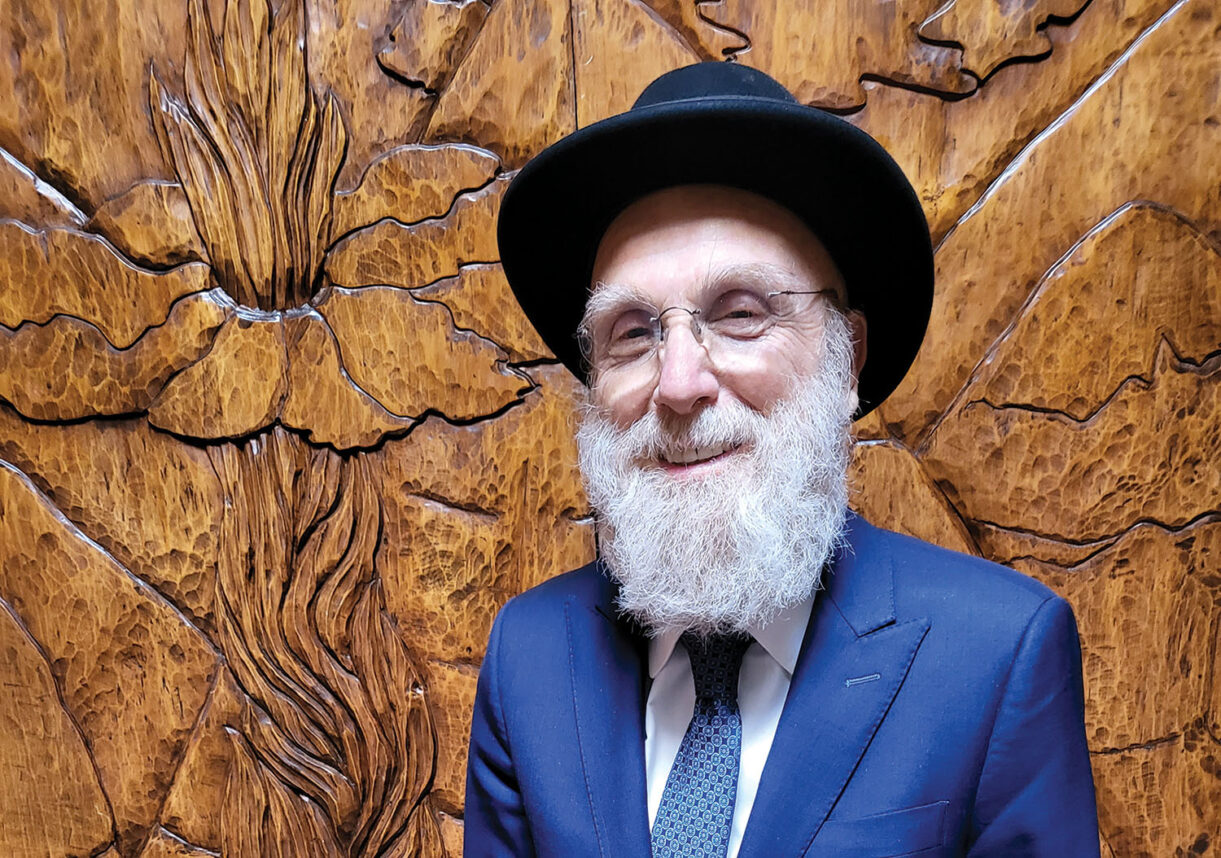
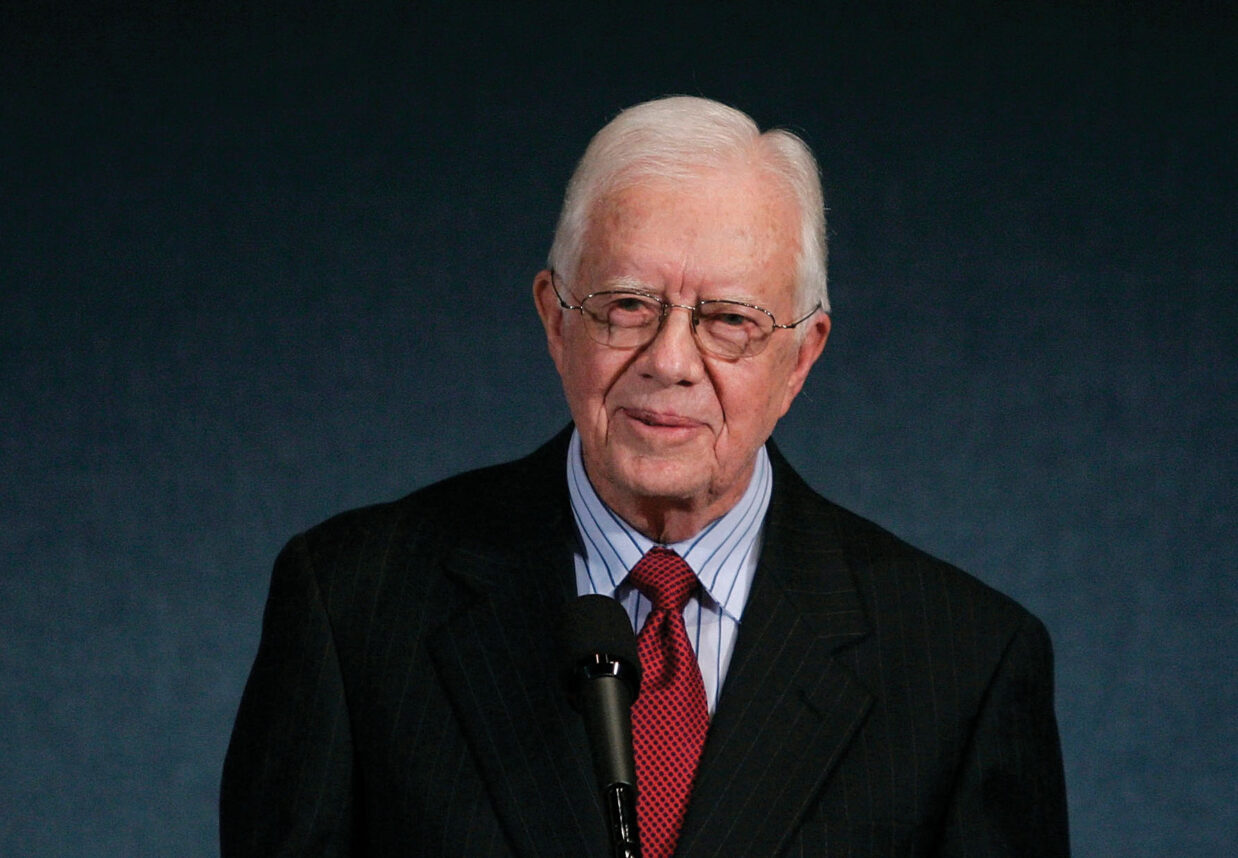
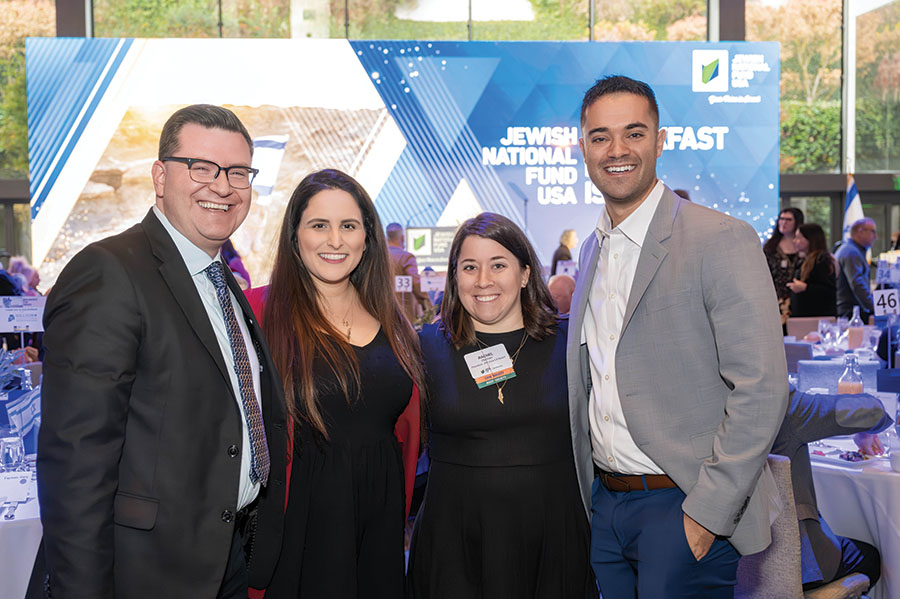
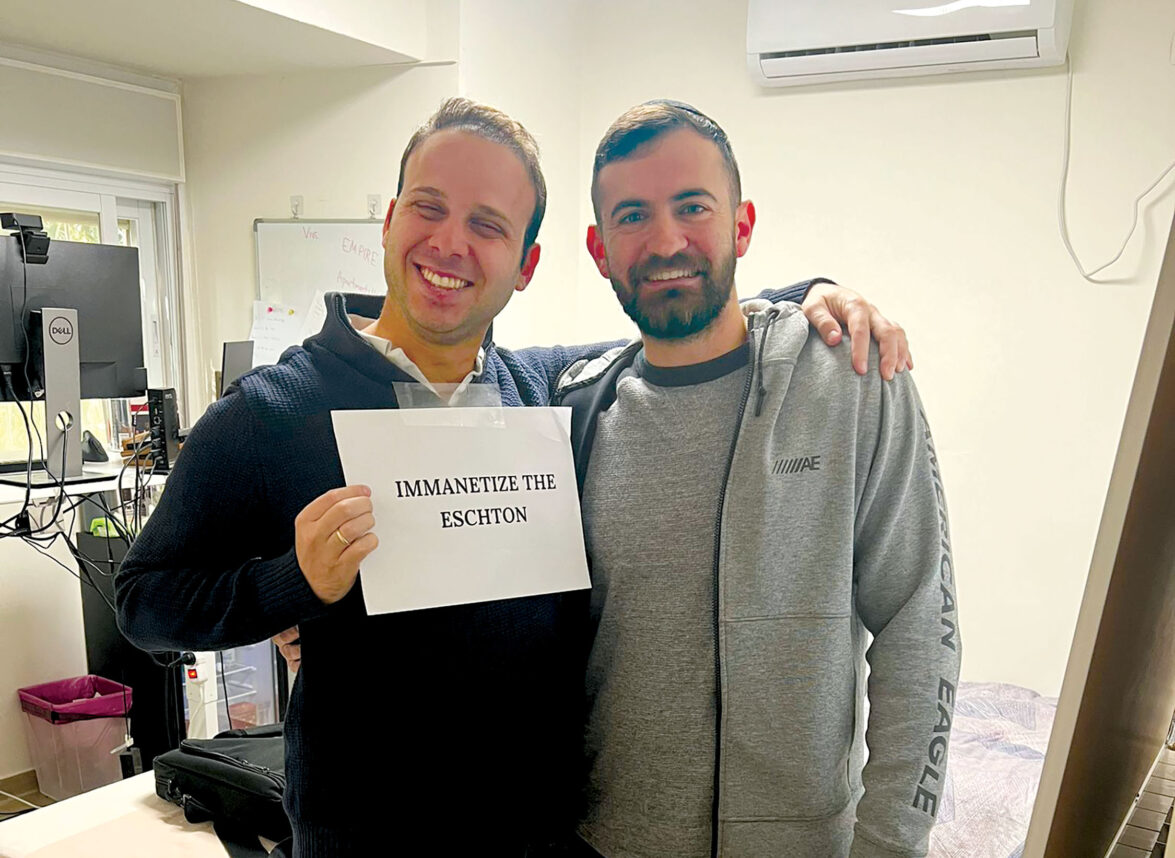






 More news and opinions than at a Shabbat dinner, right in your inbox.
More news and opinions than at a Shabbat dinner, right in your inbox.